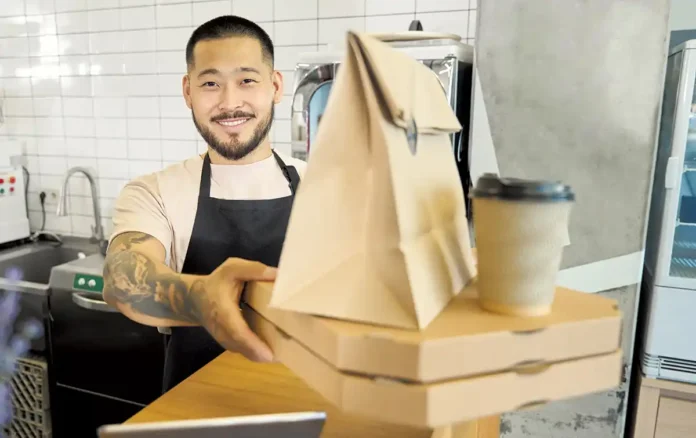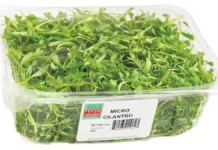
Article contributed by Jen Calamia, Ellenoff Grossman & Schole LLP
As we move into chilly winter nights, restaurants may find that they are receiving more and more delivery orders, as people are reluctant to face the elements.
Thankfully, gone are the days of being limited to the few takeout menus in your kitchen drawer. Delivery, once dominated by staples like pizza and Chinese food, has expanded to include anything and everything, from fast casual to fine dining, and from dim sum to pho to Korean BBQ, facilitated, in part, by third-party delivery apps such as Doordash, UberEats, Grubhub and Seamless. As these third-party delivery apps have increased in popularity, however, so has a new frustration by restaurants and customers alike: exorbitant fees.
Anyone who has used a third-party delivery app is no stranger to these fees. In addition to tax, and optional gratuity, it’s not uncommon to see “delivery charges,” “service charges” and all manner of “administrative fees.” As this practice becomes more prevalent,1 public scrutiny and frustration by restaurants and consumers grows. A TikTok user recently went viral after sharing his order receipt for one milk tea, showing how an order for a single $6.50 item quickly became an order totaling $22.93, in large part because of such fees.2 While Doordash has issued a statement indicating that this is not the typical user’s experience, and while it’s easy to say that this is the price for convenience at your fingertips, restaurants are hearing their customers’ frustration and considering other options, especially since many of these fees don’t actually go to the restaurants or the delivery workers. Customers may be surprised to hear that their favorite restaurants aren’t even benefitting from these steep markups. In fact, some third party delivery apps can take up to a 30% cut from each order.
Is there a solution? An emphasis on returning to direct ordering between the customer and the restaurant may be an option.
While many chains already have their own apps, more and more restaurants are offering the ability to order directly from their websites, in addition to calling in an order the old-fashioned way. These restaurants could avoid being assessed the cut taken by third-party apps, and their customers get the benefit of avoiding costly additional fees. Many of these restaurants continue to utilize third party apps, but also offer a way for customers to order directly from them, often offering incentives such as coupons, special discounts or extras, and loyalty programs which can only be utilized through direct-order apps and websites.
While this seems like a simple solution, for restaurants that were not previously offering delivery, directly fulfilling these orders can pose its own challenge: directly employing delivery workers. In 2022, the City of New York enacted new legislation regulating online third-party food delivery service and providing legal protections for delivery workers, however, these protections apply specifically to individuals making deliveries for third-party apps, not for in-house employees of the restaurant who are only delivering for that one single establishment.
So what should a restaurant keep in mind when transitioning to direct ordering with in-house delivery workers (assuming it can find them during the current labor shortage)?
In addition to their usual onboarding documents and practices, restaurants should be mindful of the following:
- Staying compliant with any state insurance and licensing requirements and ensuring that both the restaurant and delivery workers satisfy any requisite obligations.
- Complying with applicable laws such as New York’s Hospitality Wage Order and New York City’s Fair Workweek Law.
- Being mindful of tip-related practices, including what a restaurant must do to lawfully avail itself of the tip credit, and maintaining clearly established tip distribution policies so that tips are not shared with ineligible employees.
- Maintaining careful records of all hours worked, including travel time back to the restaurant after a delivery is made.
Direct delivery may benefit both the restaurant and consumer, and if it continues to grow, more restaurants may consider hiring their own delivery workers to meet the demand of such orders. Restaurants should work with employment counsel to ensure that they are properly classifying delivery persons, that they are complying with all applicable wage and hour laws, and to update their handbooks and policies accordingly. Additionally, they should continue to monitor federal, state and local laws for any changes.
 Jen Calamia is an associate in Ellenoff Grossman & Schole LLP’s Labor & Employment Practice Group. Ms. Calamia represents employers in arbitrations, administrative proceedings and state and federal litigation in all manner of employment disputes including wage and hour claims, allegations of discrimination, retaliation, hostile work environment and sexual harassment. Ms. Calamia also regularly advises employers on multi-state employment policies, industry-specific regulations and compliance with all federal, state and local employment laws.In addition to her practice, Ms. Calamia serves as an adjunct professor at Hofstra University School of Law where she teaches a course on advanced appellate advocacy skills. Ms. Calamia can be reached at (212) 370-1300 or jcalamia@egsllp.com
Jen Calamia is an associate in Ellenoff Grossman & Schole LLP’s Labor & Employment Practice Group. Ms. Calamia represents employers in arbitrations, administrative proceedings and state and federal litigation in all manner of employment disputes including wage and hour claims, allegations of discrimination, retaliation, hostile work environment and sexual harassment. Ms. Calamia also regularly advises employers on multi-state employment policies, industry-specific regulations and compliance with all federal, state and local employment laws.In addition to her practice, Ms. Calamia serves as an adjunct professor at Hofstra University School of Law where she teaches a course on advanced appellate advocacy skills. Ms. Calamia can be reached at (212) 370-1300 or jcalamia@egsllp.com
1 For example, in 2020, many app users in Chicago may have seen a “Chicago fee”, in response to a city ordinance capping the amount of fees that third-party apps could charge to restaurants. By imposing the “Chicago fee” on customers, rather than restaurants, third-party apps were able to sidestep the ordinance without losing any revenue. (https://www.chicagotribune.com/dining/ct-food-doordash-fee-restaurants-chicago-1209-20201208-b5xq3ckvo5fqbcjfcrzmbc6sxq-story.html)
2 https://www.newsweek.com/man-shocked-cost-650-drink-after-fees-took-me-out-1742247























